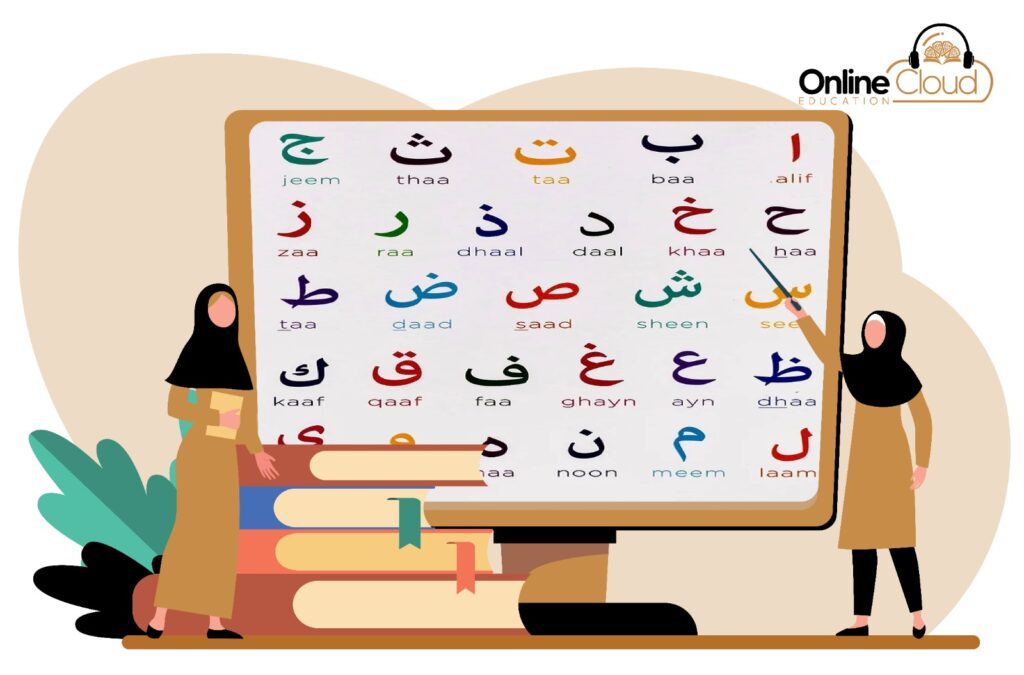Class Instructor
Support Availability
Native Instructors
Enrolled Students
One of the core aspects of Islamic practice is making Dua, or supplicating. Beyond major events such as Eid, funerals, fasting, and weddings, Islam encourages Muslims to turn to Allah even for the smallest daily matters. While it’s possible to perform everyday tasks without supplicating, doing so reflects a Muslim’s faith and highlights their reliance on Allah’s guidance and blessings in all aspects of life.
How to Make Dua
When making Dua, there are a few key principles to keep in mind for it to be effective. First and foremost, the intention behind the supplication should be sincere, coming from a pure and focused heart. While it’s not obligatory, memorizing the Arabic text of the Dua can enhance its spiritual value. For those who may struggle with reading Arabic or Quranic verses, online cloud education resources can be a helpful tool for learning.
In today’s fast-paced and demanding world, many of us encounter anger at some point. This intense emotion can cloud judgment and lead to decisions that might hurt others or result in personal loss. For Muslims, managing anger is crucial, and one effective way is through reciting Dua. The Prophet Muhammad (PBUH) advised using the following Dua when experiencing anger:
Dua for Anger:
اَ عُوْذُ بِاللهِ مِنَ الشَّيْطَانِ الرَّجِيْمِ
Transliteration: “A’oozu Billahi Minash Shaitaanir Rajeem”
Translation: “I seek refuge in Allah from the accursed Satan.” [Tirmidhi]
This hadith highlights that anger can be influenced by Satan, and seeking Allah’s help is essential for controlling it. Muslims are encouraged to recite this Dua to seek Allah’s refuge and overcome anger.
Meals are a regular part of daily life, and being able to eat is a blessing from Allah. Muslims are encouraged to show gratitude for this blessing by reciting specific Duas before and after eating.
Dua Before Eating:
بِسْمِ اللهِ الرَّحْمَنِ الرَّحِيمِ
Transliteration: “Bismillah ir-Rahman ir-Rahim”
Translation: “In the name of Allah, the Most Gracious, the Most Merciful.”
Dua After Eating:
اَلْحَمْدُ لِلَّهِ الَّذِيْ أَطْعَمَنَا وَسَقَانَا وَجَعَلَنَا مِنَ الْمُسْلِمِينَ
Transliteration: “Alhamdulillah illadhi at’amana wa saqana wa ja’alana minal Muslimeen”
Translation: “All praise is due to Allah, who has fed us and given us drink and made us among the Muslims.” [Abu Dawood]
These Duas express gratitude for the nourishment and blessings provided by Allah.
Visiting the mosque for prayers is a central practice for Muslims. It’s beneficial to recite specific Duas when entering and leaving the mosque to seek Allah’s mercy and grace.
Dua Before Entering the Mosque:
اللّهُمَّ افْتَحْ لِي أَبْوَابَ رَحْمَتِكَ
Transliteration: “Allahummaftah li abwaba rahmatika”
Translation: “O Allah, open the doors of Your Mercy for me.” [Sahih Muslim]
Dua After Leaving the Mosque:
اللّهُمَّ إِنِّي أَسْأَلُكَ مِنْ فَضْلِكَ
Transliteration: “Allahumma inni asaluka min fadhlika”
Translation: “O Allah, I seek Your Grace.” [Sahih Muslim]
These prayers help seek Allah’s mercy and favor during visits to the mosque.
Sneezing is a natural occurrence, and expressing gratitude for it is a practice encouraged in Islam. When a person sneezes, they should recite:
Dua After Sneezing:
الْحَمْدُ لِلَّهِ
Transliteration: “Alhamdulillah”
Translation: “All praise is due to Allah.”
Those who hear someone sneeze should respond with:
يَرْحَمُكَ اللَّهُ
Transliteration: “Yarhamuk Allah”
Translation: “May Allah have mercy on you.” [Bukhari, Mishkat]
Entering and exiting one’s home is another regular activity where specific Duas are recommended for protection and blessings.
Dua Before Leaving Home:
بِسْمِ اللهِ تَوَكَّلْتُ عَلَى اللهِ وَلَا حَوْلَ وَلَا قُوَّةَ إِلَّا بِاللهِ
Transliteration: “Bismillah tawakkaltu ‘ala Allah wa la hawla wa la quwwata illa billah”
Translation: “In the name of Allah, I place my trust in Allah, and there is no power or strength except through Allah.” [Tirmidhi]
Dua Upon Entering Home:
بِسْمِ اللهِ وَلَجْنَا، وَبِسْمِ اللهِ خَرَجْنَا، وَعَلَى رَبِّنَا تَوَكَّلْنَا
Transliteration: “Bismillah walajna, wa bismillah kharajna, wa ‘ala Rabbina tawakkalna”
Translation: “In the Name of Allah, we enter; in the Name of Allah, we leave; and upon our Lord, we rely.” [Abu Dawood]
Stress and discomfort are part of life, and turning to Allah for relief is encouraged. The Prophet Muhammad (PBUH) recited the following Dua in times of distress:
Dua for Stress:
لَا إِلَهَ إِلَّا اللَّهُ الْحَلِيمُ الْحَكِيمُ لَا إِلَهَ إِلَّا اللَّهُ رَبُّ الْعَرْشِ الْعَظِيمُ
لَا إِلَهَ إِلَّا اللَّهُ رَبُّ السَّمَاوَاتِ وَالْأَرْضِ وَرَبُّ الْعَرْشِ الْكَرِيمِ
Transliteration: “Laa ilaaha illallahul Haleemul Hakeem, Laa ilaaha illallah Rabbul Arshil Azeem, Laa ilaaha illallah Rabbus Samawati wal Ardi wa Rabbul Arshil Kareem”
Translation: “There is no deity except Allah, the Forbearing, the Wise. There is no deity except Allah, the Lord of the Mighty Throne. There is no deity except Allah, the Lord of the Heavens and the Earth and the Lord of the Honorable Throne.” [Tirmidhi]
Traveling involves seeking Allah’s protection and safety. The following Dua is recited when setting out on a journey:
Dua for Traveling:
سُبْحَانَ الَّذِي سَخَّرَ لَنَا هَـٰذَا وَمَا كُنَّا لَهُ مُقْرِنِينَ وَإِنَّا إِلَى رَبِّنَا لَمُنْقَلِبُونَ
Transliteration: “Subhana allathee sakhkhara lana haadha wa ma kunna lahu muqrineen, wa inna ila rabbina lamunqaliboon”
Translation: “Glory be to Allah who has made this (mode of transport) subservient to us, and we would not have been able to control it without His Grace, and indeed we are returning to our Lord.” [Tirmidhi, Abu Dawood]
Daily life includes various activities, and incorporating Duas into these activities helps seek Allah’s blessings and protection. Whether managing anger, expressing gratitude, or seeking protection and relief, reciting the appropriate Duas strengthens a Muslim’s faith and reliance on Allah.
Click Here to learn about Ijaza Certificate
We aim to share every aspect of Islamic Supplication at our online Quran learning school. Make Islamic Supplication the way of your life and strengthen your relationship with Allah Almighty. Feel free to share your valuable suggestions. Your satisfaction is our ultimate goal!
Enrollment: Simply fill up the enrollment form to join our online Quran classes. You can also provide your contact information through live chat in the “live chatbox” available on the right bottom corner of the page and our representative will guide you regarding our online Quran classes.
Trial Lesson: You can attend up to 3 days of free trial lessons with our live Quran teachers to have a better understanding of our one-on-one teaching method.
Lessons per week: You can take 2 to 5 lessons per week as per your suitability.
Lesson Duration: Every lesson is 30 minutes long.
Lesson Medium: The lessons are taken through Skype or Zoom whichever is suitable for you.
Language: Lessons can be arranged in English, Arabic, Urdu, and Hindi.
Quran Teachers: We have male and female Quran tutors who are highly qualified and experienced.
Fee Plans: Please visit Fee Plans to see our extremely reasonable standard fee plans or contact us through the “live chatbox” to discuss our customized and discounted fee plans.
Fee Payment Modes: There are several payment modes available to transfer the fee. you can pay through PayPal, Master Card, Bank account transfer, and Western Union, etc.
Yes – you can experience online Quran classes free for a week in our trail classes.
To enroll in our online Quran classes
| Schedule / Week | Classes per Month | Fee USD |
| 2 Classes / Week | 08 / Month | $22 / Month |
| 3 Classes / Week | 12 / Month | $29 / Month |
| 4 Classes / Week | 16 / Month | $35 / Month |
| 5 Classes / Week | 20 / Month | $40 / Month |
| HIFZ CLASSES | 20 / Month | $70 / Month |
| Schedule / Week | Classes per Month | Fee CAD |
| 2 Classes / Week | 08 / Month | $33 / Month |
| 3 Classes / Week | 12 / Month | $40 / Month |
| 4 Classes / Week | 16 / Month | $48 / Month |
| 5 Classes / Week | 20 / Month | $55/ Month |
| HIFZ CLASSES | 20 / Month | $110 / Month |
| Schedule / Week | Classes per Month | Fee GBP |
| 2 Classes / Week | 08 / Month | £22 / Month |
| 3 Classes / Week | 12 / Month | £30 / Month |
| 4 Classes / Week | 16 / Month | £34 / Month |
| 5 Classes / Week | 20 / Month | £38 / Month |
| HIFZ CLASSES | 20 / Month | £70/ Month |
| Schedule / Week | Classes per Month | Fee AUD |
| 2 Classes / Week | 08 / Month | A$42 / Month |
| 3 Classes / Week | 12 / Month | A$55 / Month |
| 4 Classes / Week | 16 / Month | A$63 / Month |
| 5 Classes / Week | 20 / Month | A$70 / Month |
| HIFZ CLASSES | 20 / Month | A$140 / Month |

Register Now, and get a free trial at your suitable time, you can choose your desired Instructor, Male or Female at your preferred time, There is no age limit.
